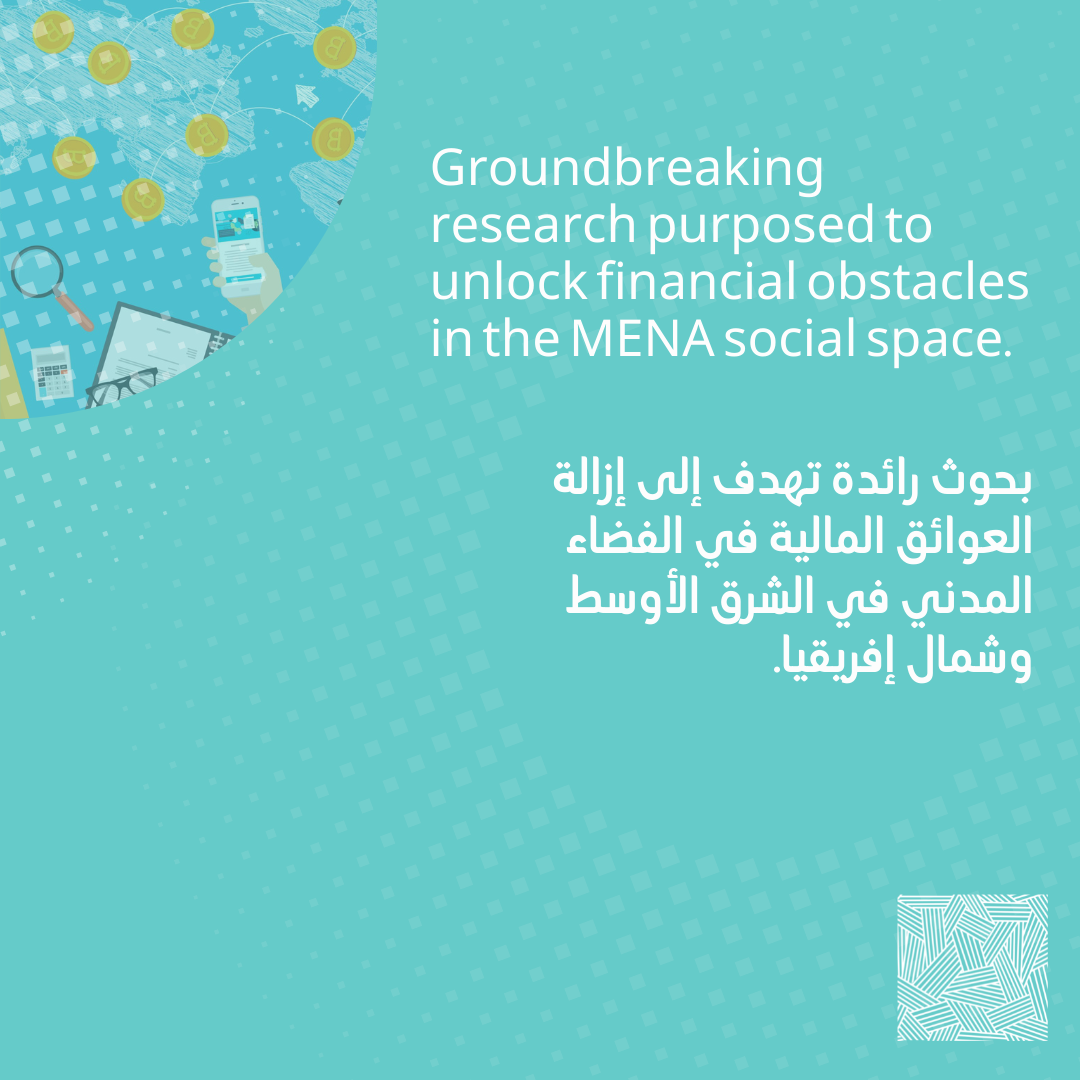
The Middle East and North Africa Civil Society Ecosystem is complex, as it is interconnected with multiple local, regional, and international variables of change, as well as political, economic, and social upheavals and institutionalized power structures that create a restrictive environment for Civil Society Organizations (CSOs) in the region.
While Civil Society Organizations in the MENA region continue to face social skepticism when it comes to their legitimacy and their work, some MENA governments maintain the operations to restrict foreign funding through complicated approval processes and other centralized governmental regulations on funds transfers, which leave the civil society sector in the MENA limited in ensuring its financial sustainability. These obstacles are reflected through legal limits on the establishment’s functions and funding of CSOs, and less formally by misapplication of these legal tools and the use of administrative barriers.
CSOs and the social sector in MENA should play a role in advocating for the needs of their communities and building successful relationships with technologists, technology companies, and policymakers. Digital currencies can be a game-changer, as there is fascinating work being done in the blockchain sector, yet; the MENA civil society sector is in dire need of training and capacity building about the use of digital currencies in the civic sector in order to achieve notable outcomes using these technologies.
In January 2019, the Innovation for Change Middle East and North Africa Hub published the Digital Currencies & the Civic Sector in the MENA Region that was the first mapping and assessment of digital money and crowdfunding in relatively open spaces in the region: Tunisia, Jordan, Morocco, and Lebanon. The mapping’s main goal was to give a critical assessment of the possibilities of digital currencies and blockchain for the “civic sector,” in the region. The mapping discussed the ties between cryptocurrencies and the readiness of the targeted countries in the region to adopt this technology as the essence of blockchain is decentralization, transparency, accountability, and immutability, which allows users to communicate and exchange currency with one another from anywhere in the world without the need for an intermediary, a technology to help CSOs surpass their current challenges in maintaining their organizational sustainability.
The I4C MENA team launched the second phase of the research in the same year to cover countries in closed spaces within the MENA region, namely Algeria, Egypt, Palestine, and the Gulf Cooperation Council (GCC) countries, and to assess the feasibility, potential, and challenges of digital money projects in these countries, as well as the legal frameworks and actors that are influencing the ecosystem, the mapping discussed Fintech and Crowdfunding as “Alternative Finance Benchmarking Report,” which indicated that the Middle East and North Africa region is still at the early stages of crowdfunding compared to the global market. However, MENA has established donation- and reward-based crowdfunding activity. The funds raised and the level of maturity of campaigns vary from one country to another.
The COVID-19 global pandemic hit in 2020, the MENA civil society sector struggle grew with the lack of available funding, increasing government and donors restrictions. I4C MENA launched a third phase of the Digital Currencies & the Civic Sector in the MENA Region in June 2021 in response to CSOs growing needs for support in circumventing traditional funding models, focusing on three countries in conflict zones including Syria, Yemen, and Libya, this phase of the research mapped out the various literature and media resources available to study the identified variables of financial technology, particularly digital currencies and blockchain technology, and their potential for civil society development in the three countries under focus.
Rajae Boujnah, the Innovation for Change MENA Hub manager, commented: “Many CSOs are in a constant struggle to sustain their operations due to local environments that can be traditionally hostile to ensuring sustainability and accelerating innovation. While donors and governments’ restrictions on funding continue to exist, our work as civil society activists should focus on advocating for the adoption of flexible alternative funding models that are adapted to local needs and contexts.